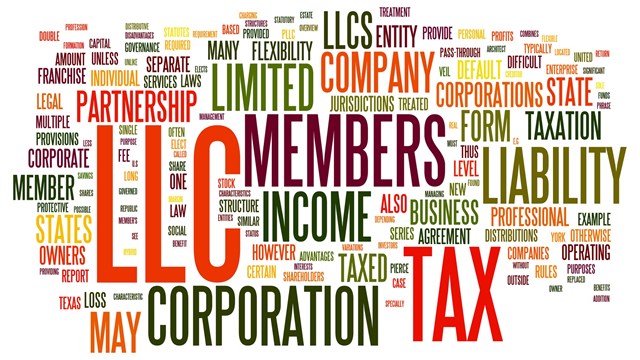Back in September, Governor Cuomo signed into law a bill passed by the New York State legislature meant to make public knowledge the actual owners of one-to-four family homes purchased under the guise of LLC’s, limited liability corporations. The outcry from the condominium community – particularly in Manhattan – was swift and vehement. Added to recent 'mansion tax' hikes and the GOP-sponsored tax bill of 2018, “At the end of the day they are strangling New York real estate,” said Donna Olshan, luxury broker and owner of Olshan Realty Co., to the Wall Street Journal.
Now it appears that the supposed chokehold has been loosened. As of earlier this month, New York State Department of Taxation and Finance officials have “reconsidered” the legislation, and issued clarifications that may soothe those concerned about the ability of celebrities and other ultra-rich buyers to purchase luxury apartments more or less anonymously using LLCs.
What is an LLC?
According to Investopedia.com, “A limited liability company (LLC) is a corporate structure in the United States whereby the owners are not personally liable for the company's debts; limited liability companies are hybrid entities that combine the characteristics of a corporation with those of a partnership or sole proprietorship. While the limited liability feature is similar to that of a corporation, the availability of flow-through taxation to the members of an LLC is a feature of partnerships.”
Over the past 25 years, the LLC structure has become the de rigueur choice for purchasers of all types of real estate – primarily as a means to shield the identity of the actual owners. This form of ownership is particularly popular with celebrities, and with foreign buyers of high-end condominium units.
Why Was the Law Passed?
The provision signed into law by Governor Cuomo was sponsored by James Skoufis and Ken Zebrowski, among others, and was the result of a local measure passed in Rockland County to combat the illegal subdivision of one- to four-family homes into multiple apartment units. In simple terms it requires that “Real property tax returns relating to residential property sold or purchased by a limited liability company...include information ownership on such company.” According to the sponsors, the goal of the bill was transparency; as Skoufis said in a press release when the bill was signed into law by Gov. Cuomo, “Neighbors have a fundamental right to know who owns the home next-door to them.”
Why Condominiums?
Unlike co-op units, which are ‘owned’ through purchased shares in a cooperative corporation condominiums are considered real property, considered in real property law to be the ‘multi-family equivalent’ of a single-family-home. Therefore, condominiums would fall under the new law – at least at first glance. The real estate brokerage community was deeply alarmed by what they saw as yet another deep bite into their ability to be profitable, particularly in the ultra-luxury market so dependent on foreign buyers who favor the anonymity of LLCs.
Larry Lubin is a broker of condominium and co-op apartments with Manhattan-based Klara Madlin Real Estate. “The change in the law requiring LLC condo buyers to reveal their identities presented a potentially huge problem at a difficult time in the luxury condominium market,” he says. “Sales have already slowed due to several factors, including overbuilding and the changes in SALT and mortgage interest deductions. Privacy is an important consideration for these types of buyers. Thankfully, the regulation wasn’t in effect long enough to have had any clear consequence.”
Clarification and Guidance
A couple weeks ago, a spokesman for the New York State Department of Taxation and Finance issued guidance that reversed the applicability of the transparency law to condominium units. The clarification was offered through the tax authority by the bill’s sponsors, Skoufis and Zebrowski. The law, they said, was not meant to apply to condominium units; only to one- to four-family homes.
Mark Hakim, an attorney with Manhattan-based firm Schwartz Sladkus Reich Greenberg & Atlas explains why the state backtracked and gave the new law's requirements a second look: “Requiring the disclosure of an LLC’s members up an unlimited number of levels until a ‘live body’ is reached is not practical, and does not take into account the reality of many ownership structures – especially in newly-constructed condominiums in New York,” he says. “Often these ownership structures are layered in multiple levels of partnerships and entities, including at times Real Estate Investments Trusts (REITS) and public companies who may participate in a deal. Imagine the absurdity of trying to get a wet signature from all members of a REIT or a public company. Thankfully the legislature was able to come to its senses and issue the new guidance, effectively eliminating this requirement. Had they not, the law’s effects could have had long-reaching adverse consequences, and further chilled a real estate market that has recently been the subject of legislation that has had unintended adverse consequences.”










Leave a Comment